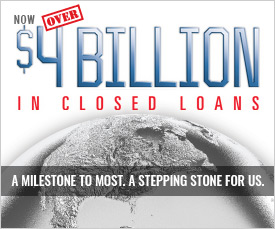
Traditional lenders are notoriously risk-averse. While a tendency toward playing it safe may seem reasonable to some lenders, this makes getting a loan much harder if you’re a borrower who doesn’t meet the strict requirements. Even if you present a traditional lender with a fantastic opportunity, if your background is less than ideal, you might be out in the cold.
That doesn’t mean you should give up. Direct private lenders are often happy to work with you if your credit score isn’t high or if a prior deal went south. Even if you feel hesitant to apply for a loan because you’re concerned about these past deals gone wrong, you have little reason to worry when it comes to hard money loans. That’s because direct private lenders focus less on the borrower and more on the merits of the deal. If the opportunity is promising, a direct private lender would be interested.
That being said, not every good idea gets funded. Direct private lenders still have requirements to adhere to, although they are far fewer than what traditional lenders require.
First, direct private lenders will want to review a clean title on the land in question. If you’re seeking money to purchase land, whether raw land or an existing structure, direct private lenders will want to be assured that there are no disputes over who owns that land, which helps ensure that any future acquisition or transfer will be smooth. Your clean title will prove to a direct private lender that offering you a hard money loan won’t drag them into a legal battle they didn’t ask for.
Second, securing a Phase One environmental report on the land in question is also of the utmost importance. Lenders want to know how to properly value the asset if remediation is required. Although direct private lenders may be more flexible in approving loans than traditional lenders are, they may decline opportunities involving projects built on land that will be cost-prohibitive to clean up before it can be used.
Third, a direct private lender will need to review a current appraisal. To properly evaluate a potential deal, a direct private lender will need to know what the property is worth. An appraisal will also detail how the property can be used and any relevant history which impacts the value of the property. This information can help direct private lenders determine the risks involved with the loan.
“When we look at which loan opportunities to fund, it’s vital to us that we know as much about the land as possible,” says Kevin Wolfer, CEO of Kennedy Funding. “While traditional lenders might never inquire about the land in question if a borrower has a poor credit history or a trail of previous deals that fell through, we make sure to look at the merits of the deal, even if the borrower may seem less than ideal in traditional settings.”
If you think your background makes you more likely to need a hard money loan, contact Kennedy Funding now to start your application.







